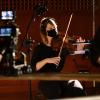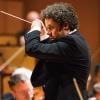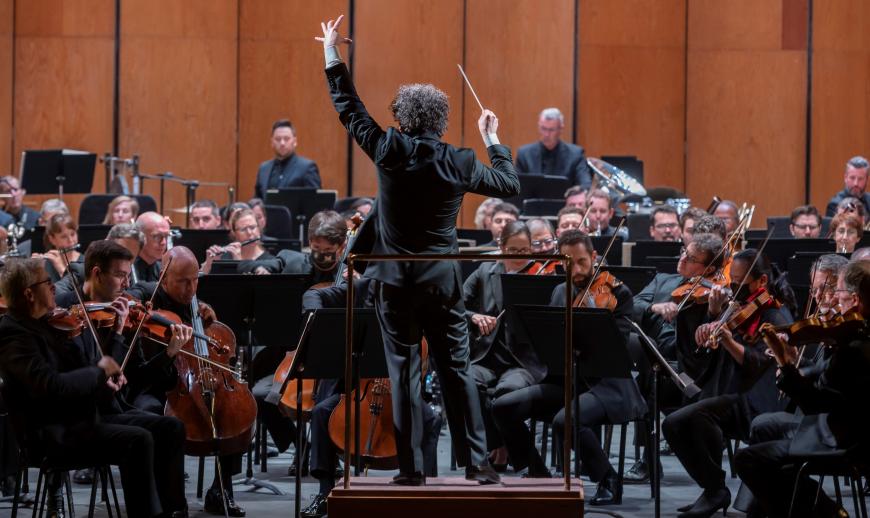
The life I love is making music with my friends
And I can’t wait to get on the road again.
— Willie Nelson
Beginning in March 2020, when the COVID-19 pandemic slammed and locked the door on the performing arts, a great deal of reporting was devoted to the amount of money that was being lost. There was, however, another aspect of the performing arts that was equally, if not even more impacted — touring. Contracted commitments arranged years in advance suddenly became impossible to fulfill, resulting in a cascade of cancellations. In addition to the loss of performing venues, the ban on international travel necessitated the cancellation of thousands of prebooked airline and hotel reservations. It was catastrophic.
“Catastrophic is a mild term for it,” says Hugh Davies, North American president for ACFEA Tour Consultants. “Apocalyptic is closer.”
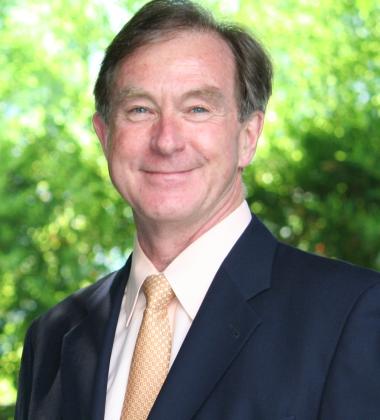
The role played by ACFEA (which was founded in London in 1955 under the name Associate Consultants for Education Abroad) is like the man behind the curtain in The Wizard of Oz. Rarely seen, ACFEA serves as a full-service facilitator for domestic and international tours for orchestras, choral groups, and colleges. They are the tactical wizards that make the music happen.
The way Davies (whose office is based in San Rafael) explains it, “We do everything from arranging the simplest sightseeing tour to arranging an engagement at the Musikverein in Vienna. We do the publicity. We book the hotels, arrange the meals, the halls, the transportation. We do everything except hold their hand when they get on the plane.”
During the months leading up to March 2020, ACFEA (which has offices in London, three in America, and others in Mexico, South Africa, Australia, Hong Kong, and Shanghai) was in the process of organizing and overseeing tours that involved thousands of employees and a million moving parts.
“On the average,” says Davies, “prior to the shutdown, ACFEA was overseeing 120 tours a year, of which 80 were in North America. Our last tour was in March 2020. Our next tour was in March 2022. At the onset of the pandemic, I remember writing to a group and naively saying, ‘I wonder if you would be willing to postpone your tour for a couple of months or so until all this blows over?’ What was I thinking! We went through two years of being a tour company without a single concert tour. If it hadn’t been for our cash reserves and government support, we could not have survived. You can imagine, when we finally saw our first international tour off in March, it was a champagne moment.”
Putting the Pandemic in the Rearview Mirror
With the mass introduction of vaccines, the decline in infections, and the lifting of travel restrictions, orchestras have already taken to the road, with many others just waiting to take off. Most recently, the Los Angeles Philharmonic and its music and artistic director, Gustavo Dudamel, returned from a whirlwind tour to Boston’s Symphony Hall (Oct. 23), New York City’s Carnegie Hall (Oct. 25–26), Mexico City’s Auditorio Nacional (Oct. 28), and Guanajuato’s Teatro Juarez (Oct. 29).
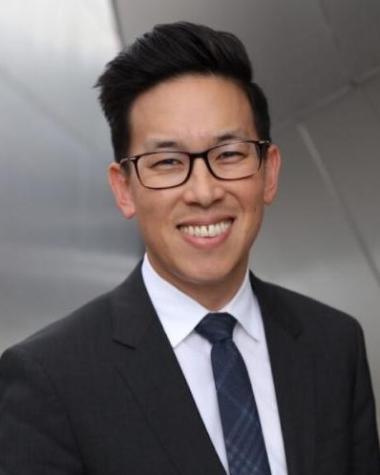
“Our last tour was almost three years ago,” recalls the orchestra’s chief operating officer, Daniel Song. “Because of the unusual conditions, planning this ‘comeback tour’ had a shorter lead time than usual. Normally for a tour like this, we would have had the structure in place by 2020. Obviously in 2020 no one was even thinking about touring. We didn’t even know when we’d be allowed to return to Disney Hall.
“The decision to start planning this tour began in early 2021. We felt there was a critical need to move forward and plan as far ahead as we could, until circumstances made things impossible. We went ahead and made contracts with hotels and the airlines; some gave us outs, some didn’t. ‘Sure,’ they said. ‘We’ll give you rooms for 130 people — if you’re coming.’
“We did have one big advantage,” Song points out. “At that point, everybody we were working with had plenty of blank pages in their calendars. As our tour grew closer, we also had the advantage of being able to talk with colleagues from other orchestras that had begun touring and take advantage of their experiences.”
Unlike smaller ensembles, when an organization the size of the LA Phil goes on the road, it not only involves the orchestra’s 100-plus musicians but also a massive support staff.
“There are a lot of moving parts,” explains Song. “Transport is a major concern since the instruments and the musicians travel separately to each concert. Gustavo has his own support entourage; there are representatives from the press department and our social media team who coordinate press conferences and interviews. We have a full-time tour doctor that travels with us, and we often invite major patrons to accompany the tour. In regard to the recent tour, once the decision was made, we may have needed to clear out the cobwebs a bit, but we’re pretty familiar with touring. It’s like riding a bicycle. And we’ve had a lot of experience with testing protocols.”
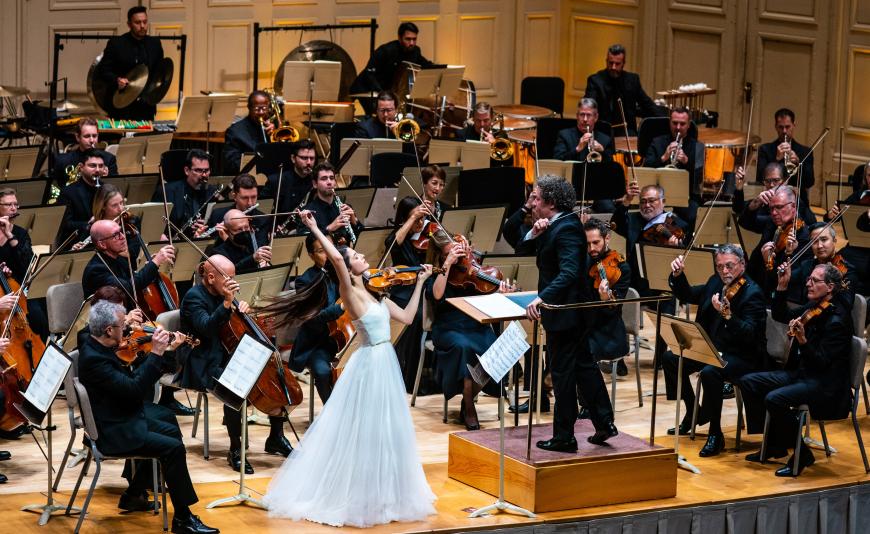
But, as Song points out, there are plenty of diseases out there other than COVID that may require the ability to quickly adapt. The first test came early in the 2022 tour when principal bassoonist Whitney Crockett fell ill just prior to the performances at Carnegie Hall. On exceedingly short notice, associate principal Shawn Mouser had to fill in, performing the challenging part in Aaron Copland’s Symphony No. 3 for the first time. “He nailed it,” a colleague recalls. Later, while the LA Phil was in Mexico, COVID did strike, requiring the orchestra to leave one musician behind in quarantine.
Why Tour?
Ever since the formative days of classical music, touring has played a critical role, certainly for soloists. The perfect example, of course, is Mozart, who made several years-long tours, initially as a child prodigy entertaining and dazzling the crowned heads of Europe.
For modern orchestras and choral ensembles, touring is less about generating monetary profits than prestige, notoriety, and enhanced brand presence, which, in turn, can translate into enhanced donor participation and ticket sales. There is also an uplifting psychological factor when artists are given the opportunity to perform in the world’s great concert halls, cathedrals, and festivals before excited new audiences.
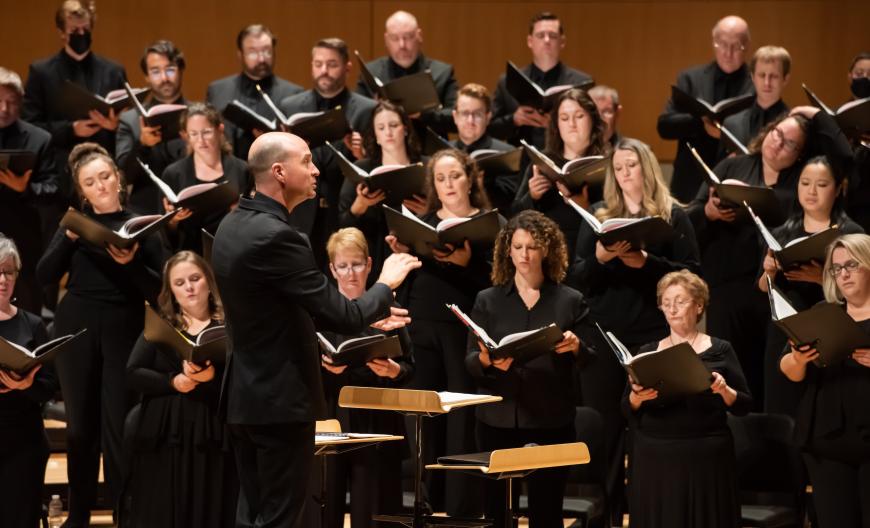
And then there are the touring experiences that are so unique (and often site-specific) that their value cannot be quantified. Just such an opportunity will present itself when Orange County’s Pacific Chorale sets off on a European tour (July 12–24, 2023) during which the group will participate in a performance of Joseph Haydn’s heroic “Lord Nelson” Mass beneath the towering vaulted ceiling of Salisbury Cathedral.
As Pacific Chorale’s president and CEO, Andy Brown, explains, “This will be the Chorale’s 14th international tour since its founding in 1968 and its first under the leadership of Robert Istad, who became artistic director in 2017. It’s coming at a time when everyone needed something to look forward to and work toward. We’ve put so much on hold for so long. Planning for this tour over the last year has provided everyone with a real incentive to stick it out.”
For the Bay Area’s Philharmonia Baroque Orchestra & Chorale, touring has become so important, says Executive Director Courtney Beck, “it’s ingrained in our DNA.
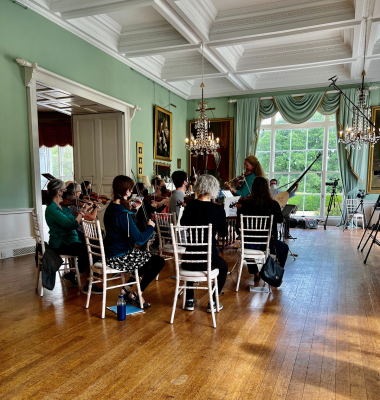
“Touring is a significant part of our portfolio and has been for the last decade,” Beck observes. “It was especially true in the years leading up to COVID when an annual East Coast tour was a regular part of our schedule. Amazing as it sounds, we even managed to sneak in a tour to New York in July of 2021. Three weeks after we played our first live Bay Area concert, we flew to New York and played (outdoors) at the Caramoor festival and the Naumburg festival in Central Park. I think we were the first American orchestra to tour during the pandemic.”
For these specific cases, Beck admits, timing was everything. “The only reason those concerts could happen was it was during that wacky moment when we thought the pandemic was over, before the Delta variant showed up. When we got to New York, no one was wearing masks (we were). We maintained all our testing protocols, played, and everything seemed fine. As we know, that didn’t last.”
In Beck’s viewing touring plays a multifaceted role. “The old saw was a reporter would ask, ‘What does touring do for you?’ And the answer is it’s complicated. You can’t say [that] if we perform at Lincoln Center, we’re going to automatically sell more tickets in the Bay Area. What our tours show our audience is that PBO is in demand.”
Join an Orchestra and See the World
In 1981, when clarinetist David Howard was told he’d been accepted by the LA Phil (under the leadership of Carlo Maria Giulini), he was 25. After all the years of study, the tension of recitals and performances, and the endless hours practicing, was he thrilled that touring was about to become a highlight of his career?
“The prospect of touring had absolutely nothing to do with it,” he recalls, categorically. “I knew orchestras toured, but it wasn’t like I thought, ‘Join the Philharmonic and see the world.’”
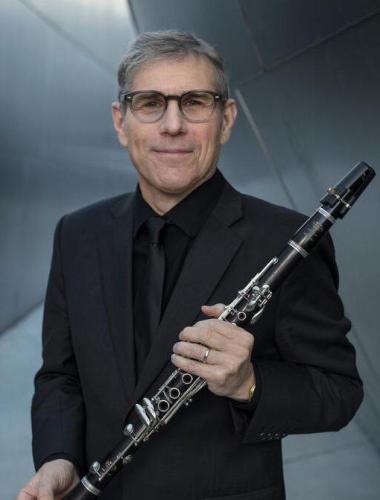
He may not have foreseen the worldwide ride that was in store. “I can’t tell you what complete magic that first season was. Within weeks of joining the orchestra, we recorded Beethoven’s Fifth Symphony and Brahms’s First. I recently listened to those recordings again thinking, ‘They can’t be as great as I remember them.’ The orchestra has reached new heights since then, but those recordings are off the charts.”
Then came Japan. Life-changing tour number one. “Near the end of my first season, we toured to Japan with Maestro Giulini, and that was extraordinarily memorable. I found out right away that the Philharmonic put a priority on treating us well: fine hotels, livable schedules, playing in the greatest halls. Keep in mind,” Howard adds with a laugh, “at that point (long before the construction of Disney Hall), every hall sounded great because our home was the Dorothy Chandler Pavilion. So when we played at the Bunka Kaikan in Tokyo, it was a revelation. It sounded so alive and immediate by comparison.”
But the most remarkable surprise, Howard remembers, was the Japanese audiences, who remain absolutely silent until the very end of the concert, then explode in appreciative applause. “That was amazing.”
Many years of touring and memorable experiences would follow, and not always because all went well. Now, after so many tours, Howard admits, they begin to blur. And then there was his first tour to Boston’s acoustically bright Symphony Hall. “Actually, I just told this story to Gustavo. In 1984, we toured with Andrew Davis. We were playing Mahler 9 at Symphony Hall without an acoustic rehearsal. We played it just as we had at the Chandler. The headline for the review in the Boston Globe was ‘Nightmare Orchestra of the Future Puts Pedal to the Floor.’ It wasn’t a compliment.”
Howard’s list of greatest tour hits is wide-ranging. Best tour: Japan with Giulini. Best party: at Dante’s villa in Florence (“You can’t beat that!”). Best non-gourmet meal: Bangers and mash on a barge on the Thames with André Previn. Most memorable opera: The complete six-hour Saint François d’Assise by Olivier Messiaen with Esa-Pekka Salonen in Salzburg.

“There was a bad travel day that got even worse,” Howard recalls. “We were traveling from Amsterdam to Cologne, where we had to play a concert that night, which is not unusual. But when we got to Cologne, none of the rooms in the hotel were ready. We waited for hours in the lobby until it was almost time to go to the hall. Everyone was irritable; nothing like that had ever happened. What we found out was some Middle Eastern oil sheikh had come with his entire retinue, and they’d been making ritual sacrifices in the rooms!”
And how did it feel to go on tour again after so long? “It was the first chance we’d had to tour after three years, so having an opportunity to play again in Boston and New York, those great halls, was a thrill, especially for me, because I will be retiring in January. The strange thing about the pandemic is that it simultaneously feels like it’s been forever and no time has gone by at all.”


